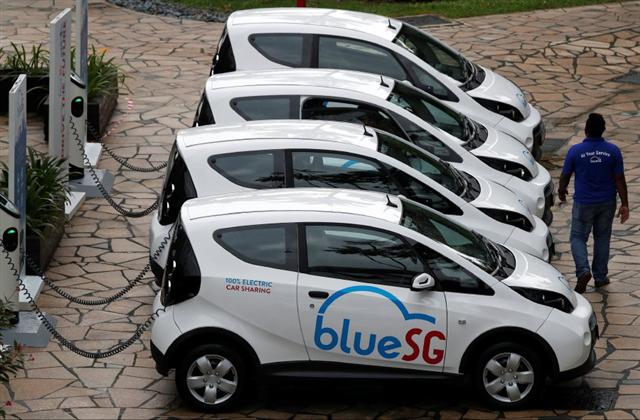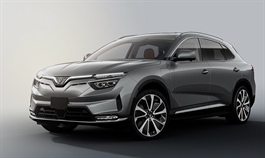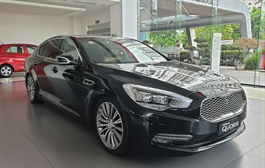Vietnam could, and should, replicate its solar success in electric mobility
Vietnam could, and should, replicate its solar success in electric mobility
Vietnam has shown the world its capability to accelerate clean energy solutions.
It demonstrated its seriousness in pursuing the energy transition with the remarkable solar boom of the last few years.
Well designed and executed supporting regulations and policies such as feed-in-tariffs (FiT), tax incentives and waiver of land lease are considered the underlying factors driving renewable energy (RE) growth, especially solar, in the country.
There is no better way to display one's commitment to energy transition toward a decarbonized energy system.
The country has pushed ahead with RE deployment to significantly add renewables to the electricity generation mix, reducing the share of coal.
By the end of 2020 Vietnam outdid its record in solar rooftop installations from 378 MW to around 9.8 GW, with 6 GW capacity installed within one month just before the FiT expiration date.
At the same time it also scrapped plans for 9.5 GW of coal-fired power in 2026-30 in its Power Development Plan 8.
Nevertheless, this promising effort to decarbonize on the supply side has somehow not been adequately replicated on the demand side.
Such vigor is not seen in the transport sector, another priority front of decarbonization. Transport is one of the most carbon-intensive energy sectors besides industry, accounting for around 21 percent of the total final energy consumption, as shown in the ASEAN Energy Database System (AEDS).
This sector could hugely reduce carbon emissions by transitioning to cleaner vehicles such as electric mobility.
Compared to other Southeast Asian countries, it is curious to see that the regulatory framework of electric mobility in Vietnam’s road transport is not that firm yet. Singapore, through its long-term land transport plan, aims to phase out all fossil-fueled vehicles by 2040.
Other countries such as Indonesia, Malaysia and Thailand have released roadmaps for electric vehicle development.

Singapore's BlueSG electric car-sharing vehicles were launched in 2017. Photo by Reuters.
|
While the deep decarbonization of Vietnam’s power sector is considered a massive success, Vietnam can also start to decarbonize its transport sector.
Interestingly, the pursuance of electric mobility could form a symbiotic relationship with the development of solar energy.
One potential challenge raised by the broad penetration of electric vehicles is the increasing electricity demand for charging. Such a possible surge might put extra stress on both the power grid and electricity generation. Meanwhile, solar power faces issues due to its generation intermittency.
The unexpected surge of solar power supply in Vietnam has brought to the fore discussions on power grid readiness and supply-demand balance, and electric vehicles might help address this issue.
With proper demand-side management, the charging of electric vehicles could be synchronized with peak solar power generation, which is during the daytime.
Behavioral patterns need to be socially engineered, but it is possible.
Noting the crucial role of electric mobility in greening up Vietnam's transport sector and beyond, a specific and appropriate regulatory framework should be designed, which could derive insights from the acclaimed solar revolution.
Vietnam could also benefit from the benchmarking of a regulatory framework in other countries in the region and lessons from front-runner EV countries like Norway and China—finding what works best and what does not.
Two sets of policies can be drawn from such an exercise. The first is setting up specific, ambitious but attainable targets. The targets can be related to EV penetration itself or supporting infrastructure such as charging stations.
It is also advisable to add detailed targets, especially for priority areas such as public transport and two-wheelers.
The second is that incentive and disincentive policies should complement the targets, creating a proper step-by-step roadmap.
These support policies could focus on building demand early through fiscal and non-fiscal incentives. But to ensure a sustainable environment for electric vehicles, incentives should be well designed to boost the capacity of local industry, both in production and maintenance. The incentives offered could enable local industry to become more mature institutionally and secure financially.
This maturity will provide benefits like creating more jobs for trained locals. People will get not only jobs, but also brand-new expertise in these emerging technologies, which will help improve their capacity in many areas.
Besides, a mature local industry could also bring EV prices down through the use of more local content.
Boosting electric vehicle use in Vietnam is a viable strategy that needs to be grabbed fast. As proven in the solar boom case, a clear and consistent target supporting stable environments could accelerate the progress.
If the success recipes of the solar triumph can be applied to electric mobility promotion, another boom in clean energy solutions is just a matter of time.
*Muhammad Rizki Kresnawan is Technical Officer at the Energy Modeling and Policy Planning Department at the ASEAN Center for Energy. Dr Zulfikar Yurnaidi is Senior Research Analyst at the ASEAN Climate Change and Energy Project at the ASEAN Center for Energy. The opinions expressed are their own.



























